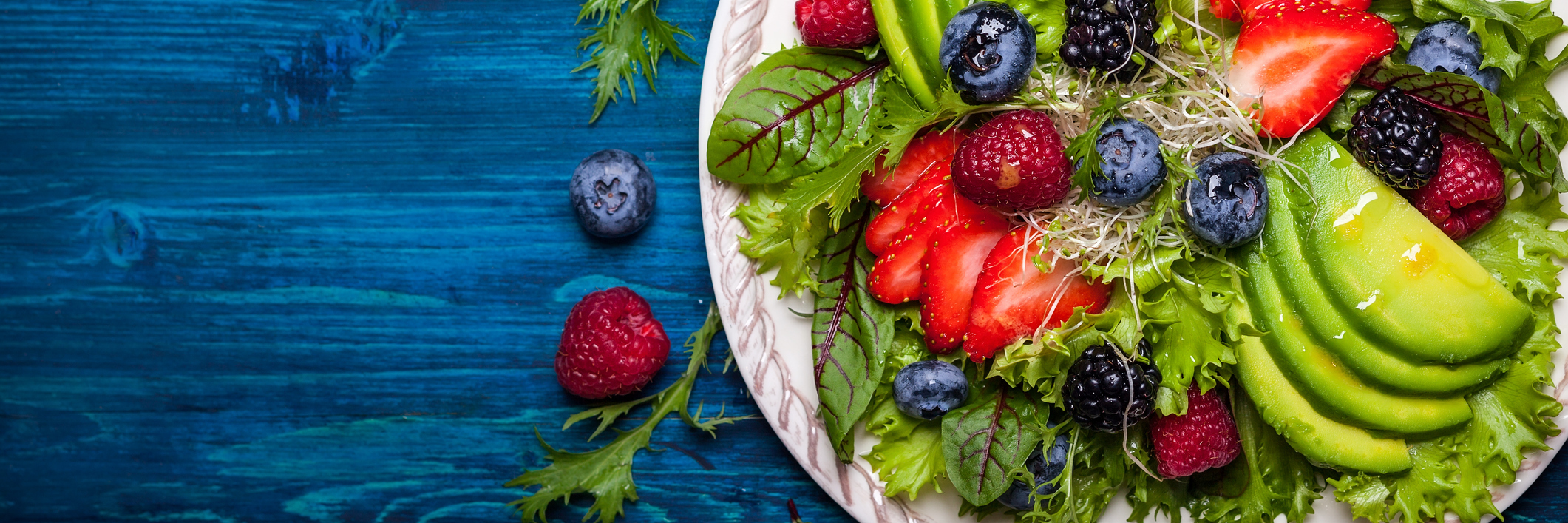Editor’s note: If you live with an eating disorder, the following post could be potentially triggering. You can contact the Crisis Text Line by texting “NEDA” to 741-741.
“Hi, could I get my latte made with soy milk, please? I don’t drink dairy anymore, it’s so bad for you!”
This is the sentence a 20-something proudly announces to her friend around the university cafeteria, and my heart sinks a little.
I stare at my feta cheese pasta salad I had previously been looking forward to… suddenly not as hungry as before, trying to use coping skills I have learned to quieten the thoughts racing in my head so I can finish my lunch. I know I have a good portion size. I know it’s a healthy amount for a lunch. However, my anxiety is racing because I am trying to eat an animal product.
Throughout my recovery from an eating disorder, something has appeared again and again that always confuses me. That thing is veganism.
I want to be completely honest, so I will admit that a part of me strongly wants to become vegan. I hate the harmful way animals can be treated, and the positive effects on the environment also prove appealing to the lifestyle. However, I also know I am a worrier and prone to black and white thinking, which makes me cautious to give myself such rules around food.
I have worked hard to develop a proper sense of healthy portion size, and I enjoy three meals a day with snacks… but there are now other food-related anxieties I need to tackle. Eating disordered thoughts can raise their heads at the suggestions of “don’t eat this, it’s bad for you;” “animal products are bad;” “too many vegetables are bad,” etc. And despite the best intentions of veganism, such food rules are unfortunately prevalent in this diet.
I have seen articles tackling the issue of “taking clean eating and veganism too far,” yet they always seem to go down the route of “eventually this person didn’t eat enough and developed an eating disorder (ED).”
This upsets me a little, because it ignores one of the main driving forces of some eating disorders. A person can eat three large meals a day, with snacks and a dessert, but they can still have an eating disorder. If that person can’t bear to have food prepared by someone else, or if they can only use a certain kind of oil, or if the slightest trace of preservatives affects their feeling of self-worth and mood, then I would argue this is a disordered mind set.
Eating disorders play into a person’s need for control. They trick you into thinking you have control by creating rules around eating habits — and living by such rules gives false structure and control in the person’s life.
The problem with recovery is unpicking the rules that are genuinely yours, and the rules that come from an eating disorder. As much as I love the idea of veganism, I also hate it. I hate the idea of having an excuse to have oat milk instead of real milk in my latte, because too much dairy frightens me. I hate that I could, in theory, turn down beef lasagna because animal meat frightens me and I don’t know exactly how it was prepared.
It’s all so complex, which is why the increased popularity of clean eating, raw and vegan lifestyles can feel confusing. How much of these dietary rules are your own choices, and how much are they an eating disorder’s?
It’s an extremely gray area and providing an answer is difficult. My answer for myself right now is to simply be as ethical as possible, without giving myself strict eating rules; this means I do have dairy, eggs and meat now and then.
Right now, my main focus is discovering the part of me that enjoys food and doesn’t ruminate over every ingredient. This means if someone offers me a really yummy looking coconut milk vegan cup cake, I can take it! But it also means that if I really want a milky latte with a chocolate cookie, I can have that too.
The annoying thing is, as much as everyone still has strong arguments on both sides, I am trying to learn that it’s not my job right now to make my life devoted to being anxious as I try to work out the answer. Right now, I want to learn to live a full life, with a bit more faith in what my body can handle. Once I don’t feel I have to mentally punish myself over my omnivore eating habits, then perhaps I can truly address how I want to go about the veganism way of eating.
If you or someone you know is struggling with an eating disorder, you can call the National Eating Disorders Association Helpline at 1-800-931-2237.
We want to hear your story. Become a Mighty contributor here.
Thinkstock photo via Sarsmis

